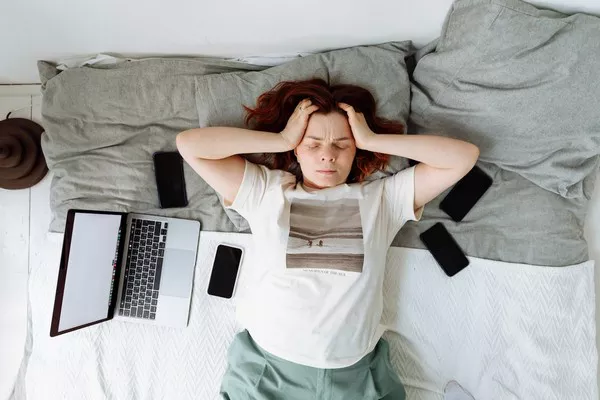Social anxiety disorder, also known as social phobia, is a common mental health condition characterized by intense fear and anxiety in social situations. It can significantly impact an individual’s personal and professional life, leading to avoidance of social interactions and a diminished quality of life. Fortunately, there are effective treatment options available, including medication, that can help individuals manage and alleviate the symptoms of social anxiety. In this article, we will explore the different medications commonly used in the treatment of social anxiety disorder.
1. Introduction to Social Anxiety Disorder
Social anxiety disorder is more than just shyness or occasional nervousness. It is a chronic mental health condition that can cause extreme distress and interfere with daily functioning. Individuals with social anxiety often experience intense fear of being judged, embarrassed, or humiliated in social situations. This fear can manifest in various ways, such as avoiding social gatherings, speaking in public, or initiating conversations. Social anxiety can have a profound impact on an individual’s self-esteem, relationships, and overall well-being.
2. Medication as a Treatment Option
While therapy, such as cognitive-behavioral therapy (CBT), is considered the first-line treatment for social anxiety disorder, medication can be a helpful adjunct or primary treatment option for some individuals. Medications prescribed for social anxiety aim to reduce anxiety symptoms and improve overall functioning. They work by affecting certain chemicals in the brain that regulate mood and anxiety.
3. Selective Serotonin Reuptake Inhibitors (SSRIs)
SSRIs are commonly prescribed antidepressant medications that have shown efficacy in the treatment of social anxiety disorder. They work by increasing the levels of serotonin, a neurotransmitter associated with mood regulation, in the brain. Some commonly used SSRIs for social anxiety disorder include:
a) Sertraline: Sertraline is one of the most widely prescribed SSRIs for social anxiety disorder. It has been shown to effectively reduce anxiety symptoms and improve social functioning. Sertraline is generally well-tolerated, and common side effects may include nausea, insomnia, and sexual dysfunction.
b) Fluoxetine: Fluoxetine is another SSRI that is often prescribed for social anxiety disorder. It helps alleviate anxiety symptoms and can improve overall quality of life. Side effects may include gastrointestinal disturbances, sleep disturbances, and sexual dysfunction.
4. Serotonin-Norepinephrine Reuptake Inhibitors (SNRIs)
SNRIs are another class of antidepressant medications that can be effective in treating social anxiety disorder. They work by increasing the levels of both serotonin and norepinephrine, another neurotransmitter associated with mood and anxiety regulation. Some commonly used SNRIs for social anxiety disorder include:
a) Venlafaxine: Venlafaxine is an SNRI that has shown efficacy in reducing social anxiety symptoms. It can help individuals manage their anxiety and improve social interactions. Common side effects may include nausea, dizziness, and increased blood pressure.
b) Duloxetine: Duloxetine is another SNRI that may be prescribed for social anxiety disorder. It can help reduce anxiety symptoms and improve overall well-being. Side effects may include gastrointestinal disturbances, fatigue, and dry mouth.
5. Benzodiazepines
Benzodiazepines are a class of medications that work by enhancing the effects of a neurotransmitter called gamma-aminobutyric acid (GABA), which helps calm the brain and reduce anxiety. While benzodiazepines can provide rapid relief of anxiety symptoms, they are typically prescribed for short-term use due to their potential for dependence and withdrawal symptoms. Some commonly used benzodiazepines for social anxiety disorder include:
a) Alprazolam: Alprazolam is a benzodiazepine that can provide short-term relief from social anxiety symptoms. It has a rapid onset of action and can help individuals manage acute anxiety episodes. However, it is generally prescribed for short durations due to the risk of dependence and withdrawal symptoms. Common side effects may include drowsiness, dizziness, and cognitive impairment.
b) Clonazepam: Clonazepam is another benzodiazepine that may be prescribed for social anxiety disorder. It can help individuals manage anxiety symptoms and promote relaxation. As with other benzodiazepines, it is typically used for short-term relief due to the risk of dependence. Side effects may include sedation, dizziness, and coordination difficulties.
6. Beta-Blockers
While not traditionally considered an antidepressant or anti-anxiety medication, beta-blockers can be helpful in managing the physical symptoms of anxiety, such as rapid heartbeat, trembling, and sweating. Beta-blockers work by blocking the effects of adrenaline, a hormone associated with the “fight or flight” response. Some commonly used beta-blockers for social anxiety disorder include:
a) Propranolol: Propranolol is a beta-blocker that can be prescribed to alleviate physical symptoms of social anxiety, such as trembling and rapid heartbeat. It is often used on an as-needed basis, taken before specific anxiety-provoking situations. Common side effects may include fatigue, dizziness, and low blood pressure.
7. Other Considerations
When considering medication for social anxiety disorder, it is important to consult with a qualified healthcare professional. They will assess your specific symptoms, medical history, and any potential interactions with other medications. Additionally, it is crucial to discuss the potential benefits and risks of medication, as well as any potential side effects. Medication should be tailored to each individual’s needs, and it may require a trial period to determine its effectiveness.
8. Combining Medication with Therapy
Medication should be considered as part of a comprehensive treatment plan for social anxiety disorder. While it can help manage symptoms, it is often most effective when combined with therapy, such as cognitive-behavioral therapy (CBT). Therapy can help individuals develop coping mechanisms, challenge negative thought patterns, and gradually face feared social situations. The combination of medication and therapy can provide a holistic approach to managing social anxiety and improving overall well-being.
9. Conclusion
Medication can be a valuable tool in the treatment of social anxiety disorder. Selective serotonin reuptake inhibitors (SSRIs), serotonin-norepinephrine reuptake inhibitors (SNRIs), benzodiazepines, and beta-blockers are commonly prescribed medications that can help individuals manage anxiety symptoms and improve social functioning. However, it is important to consult with a healthcare professional to determine the most appropriate medication and dosage based on individual needs. Additionally, medication should be used in conjunction with therapy to address the underlying causes of social anxiety and develop long-term coping strategies. With the right treatment approach, individuals with social anxiety disorder can experience significant improvement in their quality of life and overall well-being.
Related Topics:



























